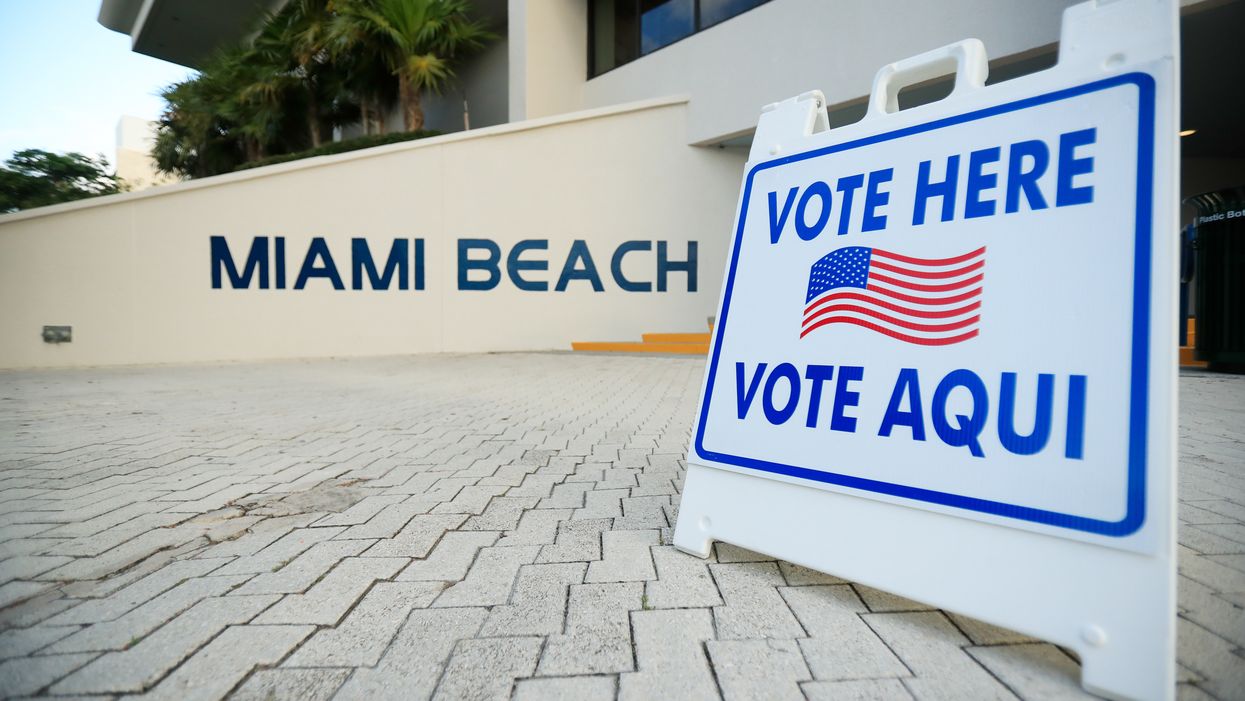Votes are still being counted in several states across the country — but, unlike 20 years ago, Florida is not among them and so is not in the spotlight. But the state should nonetheless be highlighted as the place where a proposed state constitutional amendment received 57 percent of the vote last week, and still was not adopted.
Amendment 3 proposed the implementation of nonpartisan top-two open primaries to reform the current closed primary system in Florida. A clear majority of voters want to get rid of our closed primaries. But, for the past 14 years, a supermajority of 60 percent has been required on a ballot measure proposing a constitutional amendment.
It is worth noting a bit of the history behind the movement for open primaries in Florida.
In 1998, Floridians overwhelmingly voted for an amendment that allowed every voter to vote in a primary election when only one party fields candidates and would face no opposition in the general election. It passed with 64 percent support, at a time when a simple majority was still the threshold for approval.
Upon passage, the political parties sought an opinion on whether write-in candidates constituted valid opposition. The state said yes, and the courts upheld that view.
A loophole for undermining the will of almost two in three Floridians thereby became available to partisan political operatives. Since that time, Republican and Democratic leaders alike have enlisted bogus write-in candidates so that they could keep their primaries closed to all the voters who are not registered members of their parties.
The most egregious case involved a candidate who recruited her mother to run against her as a write-in in two consecutive elections.
Twenty years later, the convening of the Florida Constitution Revision Commission produced an outcry for open primaries. During public hearings, open primaries became the second-most popular issue raised — right behind the automatic restoration of voting rights for formerly incarcerated citizens.
Two commissioners sponsored proposals, one for an open primary and the other to close the write-in loophole.
Although both received support in committees, the full commission refused to advance the proposals to the 2018 ballot.
My grassroots organization immediately formed a political committee, submitted petitions to the secretary of state and put volunteers to work collecting signatures. We had collected 8,500 signatures when we heard that a wealthy Miami resident was interested in open primaries.
We put our effort on pause when we then heard he was teaming up with another organization, All Voters Vote. We withdrew our petitions and dedicated ourselves to supporting that group's effort. That culminated in forming a new PAC, Florida Open Primaries, the sole purpose of which was to promote what became Amendment 3.
The All Voters Vote team did the heavy lifting of collecting more than 1 million signatures and fending off the inevitable court challenges. Now, it was time for us to get to work.
With the incredible assistance of Open Primaries, we raised some money, produced a video ad, hired a media firm, printed yard signs, began submitting letters to the editor — and put my organization's co-founder, Jeff Solomon, to work pounding out emails.
With very few resources our video got 400,000 views. Five million emails were sent, resulting in 1.2 million direct contacts. Volunteers stepped up and placed 1,000 yard signs across the state. Others wrote letters to the editor and op-eds or recorded short video testimonials. Some polling was conducted and we were feeling good about our prospects of winning. Then a bomb went off.
It was no secret that both major parties opposed Amendment 3. But inAugust they went nuclear.
Until that time, the Florida League of Women Voters supported our effort. They even helped collect signatures to get it on the ballot. But then its leaders saw an article in the Tampa Bay Times about a report that Amendment 3 would "bleach" a number of Black-majority districts and would lead to less minority representation.
Given the national environment of racial tension, the League was pressured to throw out years of studying the issue and reverse its previous support. The report at issue was produced by a freelance consultant with ties to the state Democratic Party. Ignoring evidence that minority representation has increased in California since its adoption of a similar top-two primary system, the League withdrew its support. (Two board members resigned in protest.)
Soon after, the Black Legislative Caucus held a news conference denouncing Amendment 3. And mailers paid for by the Florida Democratic Party blanketed the state containing photos of the Rev. Dr. Martin Luther King, Jr. and former Rep. John Lewis claiming that Amendment 3 would reverse the gains Black voters have made over the decades of struggle for voting rights.
The Republican Party of Florida followed suit with mailers claiming the amendment was being promoted by "leftists" antagonistic to President Trump. The campaigns were underhanded to say the least.
Despite the parties' aggressive smear campaigns, our effort still received 57 percent of the vote. That is a clear majority and, in my book, a huge win.
Visit IVN.us for more from Independent Voter News.


















 Senate Committee on Commerce, Science, and Transportation ranking member Sen. Maria Cantwell (D-WA) (R) questions witnesses during a hearing in the Russell Senate Office Building on Capitol Hill on February 10, 2026 in Washington, DC. The hearing explored the proposed $3.5 billion acquisition of Tegna Inc. by Nexstar Media Group, which would create the largest regional TV station operator in the United States. (Photo by Chip Somodevilla/Getty Images)
Senate Committee on Commerce, Science, and Transportation ranking member Sen. Maria Cantwell (D-WA) (R) questions witnesses during a hearing in the Russell Senate Office Building on Capitol Hill on February 10, 2026 in Washington, DC. The hearing explored the proposed $3.5 billion acquisition of Tegna Inc. by Nexstar Media Group, which would create the largest regional TV station operator in the United States. (Photo by Chip Somodevilla/Getty Images)
